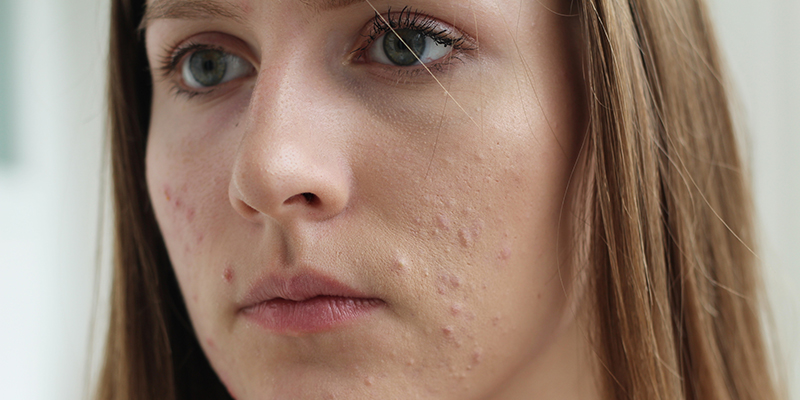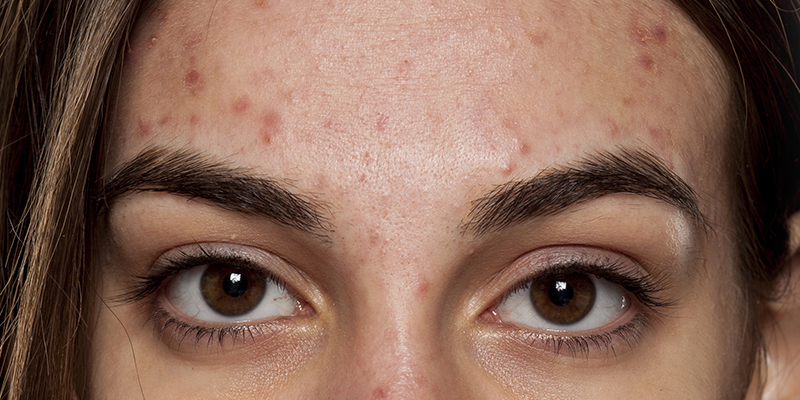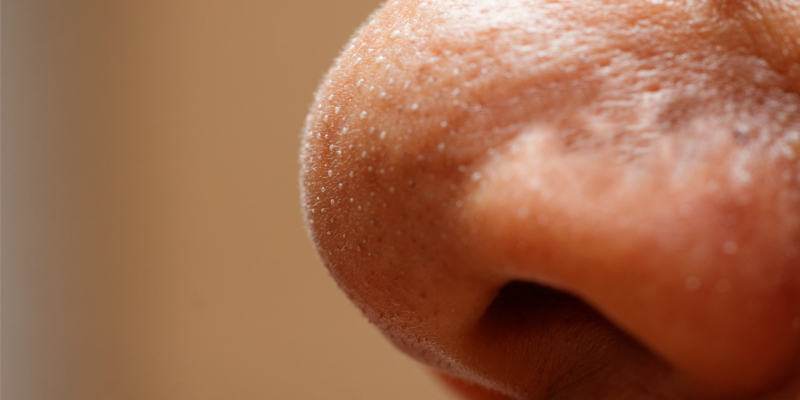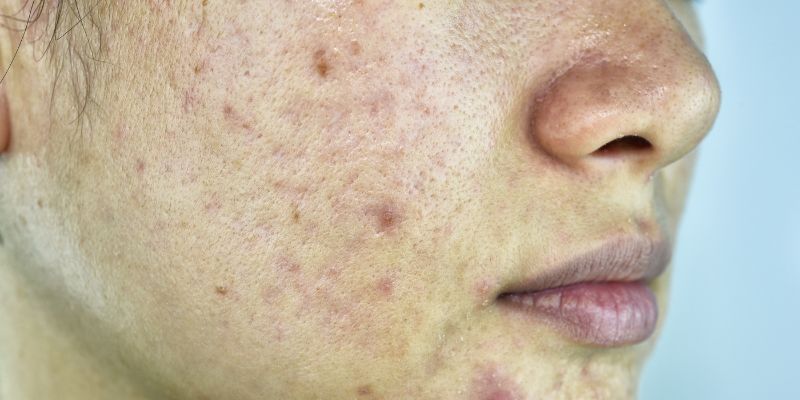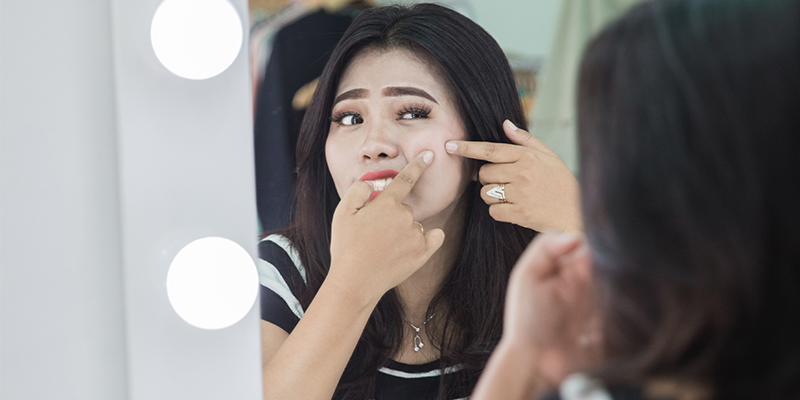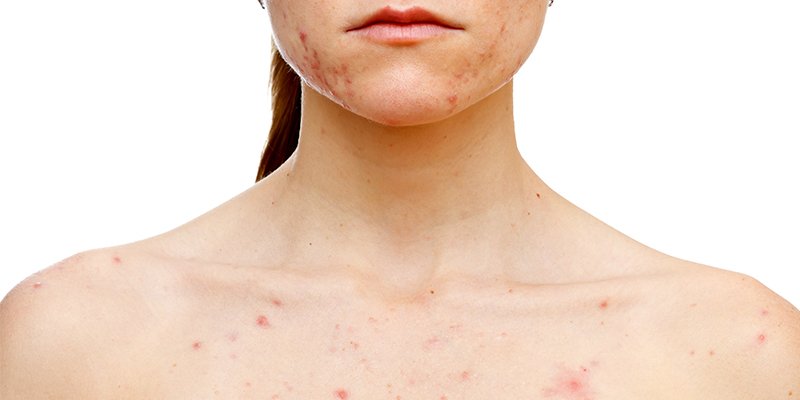Is Isotretinoin Effective For Acne?
The problem of acne begins during puberty and causes not just painful outgrowths but unsightly appearances on skin too. Many people continue to suffer from acne beyond their teenage years, with some men and women experiencing breakouts even in their 40s. As time progresses, the problem of acne can intensify in such a way that pimples are transformed into nodular and cystic acne that are painful and prominent. Isotretinoin is a common medication used for the treatment and prevention of such persistent acne.
What Is Isotretinoin?
Isotretinoin is a medication that belongs to the class of drugs known as retinoids. It was approved by USFDA in 1982 for the treatment of unmanageable acne such as cystic acne and nodular acne. It is an oral medication that is often sold under the name Accutane. It is anti-inflammatory and immunomodulatory in function. It also reduces keratinization and promotes cell differentiation.
Must Read: How To Find The Best Dermatologist For Acne Treatment?
How To Use Isotretinoin For Acne?
With its approval in 1982 by the FDA, isotretinoin is often used to treat acne that does not respond to conventional medications such as topical creams, lotions and antibiotics. It reduces the excess sebum production from the sebaceous glands by causing a reduction in the gland size. Reduced sebum prevents the clogging of skin pores from excess oil, thus causing a noticeable reduction in the incidence and severity of acne.
What Are The Benefits Of Isotretinoin?
Isotretinoin treatment for acne becomes effectual because of the various changes brought about in the skin with the usage of this drug. The benefits of isotretinoin are because of the properties this drug possesses and its mechanism of action, once it enters the blood stream in the body. Some of the benefits include –
- Reduces sebum production
- Pores are not blocked as it impacts the comedogenesis process
- The number of acne causing bacteria (Propionibacterium acnes) on the skin’s surface and the ducts is lowered
- Alleviates inflammation
- Hyperkeratinization is diminished
All of these work towards treating the adamant cystic acne and greatly decreasing the formation and occurrence of acne.
Must Read:
Isotretinoin Dosage For Acne
Oral isotretinoin is available in capsule form and is meant to be ingested as is, with food, for better absorption. The isotretinoin dosage is customized for each individual based on the severity of their acne and body weight. As the treatment with this medication progresses, the dosage is often adjusted by the dermatologist depending on how your skin and body is responding to the treatment.
The dosage of isotretinoin for acne treatment can start as low as 0.5 mg per kg of body weight per day (0.5 mg/kg/day) and it can go up to a high dosage of 2 mg per kg of body weight per day. And intermediate dosage also exists for one mg per kg. The doctor may prescribe you to take this medication once or twice a day and the duration of the intake is usually around four to six months. However, this time period is subjective for every case of acne and how the body responds to the medication during the initial weeks.
Isotretinoin Treatment For Severe Acne
Prescription treatment for severe acne includes oral isotretinoin as a primary medication. Numerous studies across the world have proved the efficacy and safety of this medicine. Apart from the impressive and noticeable results for severe acne such as nodular acne and cystic acne, isotretinoin is an FDA approved formula. This illustrates its usage and safety in treating severe acne.
Severe and widespread acne may require combination treatments in addition to the conventional courses such as antibiotics, chemical peels, glycolic acid, sulphur, etc. As they are adamant and damage the skin notably by affecting the collagen and elastin in the skin’s lower layers. Deep scars easily form if nodular and cystic acne are not treated promptly. Isotretinoin treatment for severe acne was approved in 1982 and it has revolutionized acne treatment for dermatologists and patients across the globe since then.
The process of isotretinoin working towards reducing sebum production and lowering keratinization prevents pore plugging and eventually the acne is prevented further, by this medication. The redness and swelling that is associated with nodular cystic acne is also tackled well by this drug. These effects make the before and after results of isotretinoin treatment evident.
Precautions While Using Isotretinoin
Before taking isotretinoin, note any allergies that you may have and convey this to your dermatologist. It is best to screen existing allergies in order to prevent unwarranted effects from taking oral isotretinoin for acne treatment. Additionally, if you or your family members have a medical history of diabetes, high LDL, liver disease, depression and other psychiatric disorders, obesity, pancreatic disease or a major ailment, notify your doctor before you begin the isotretinoin course for your acne problem.
Pregnant and breastfeeding women should not take isotretinoin as it can harm the foetus and the lactating baby. Women planning to become pregnant should discontinue the medication at least one month before they plan to conceive.
Common Side Effects Of Isotretinoin
Along with the glorious advantages of isotretinoin, this medication has a few disadvantages too. The common side effects of isotretinoin include crusty skin, dry mouth, cracked lips, upset stomach, nosebleeds and hair thinning in rare cases. They do not last long in most cases but in case the effects are persistent or worsen, speak to your dermatologist at the earliest.
Must Read: Benzoyl Peroxide For Acne – Uses & Side Effects
Also Read: Papule – Causes, Symptoms & Treatments
Isotretinoin is popular drug when it comes to effective acne treatment. Its usage for acne treatment is worldwide. Isotretinoin therapy has helped many people suffering from severe and widespread acne. If you have persistent acne that does not seem to be responding to generic treatments, consult a dermatologist to know if isotretinoin is a suitable option for you.






